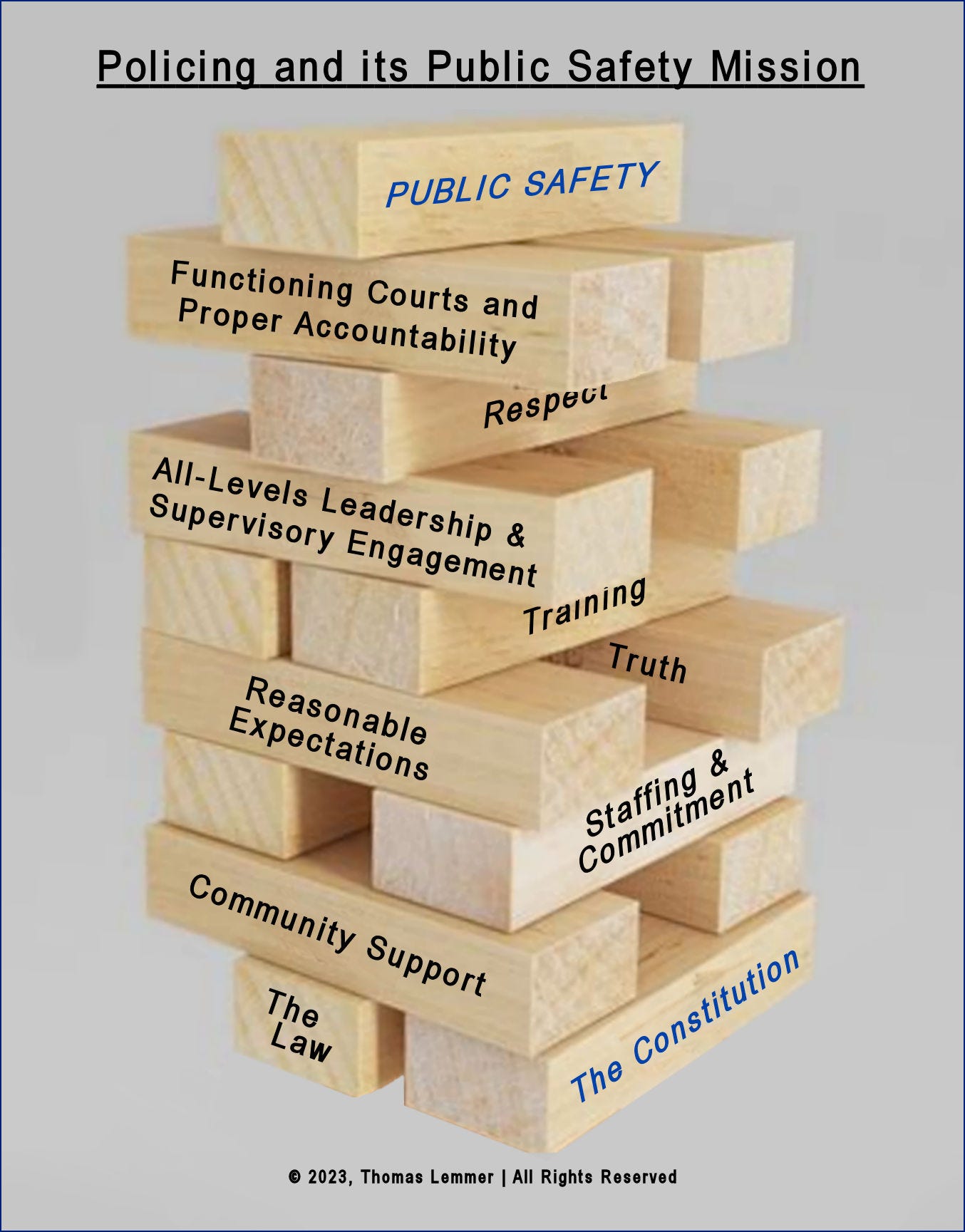The Pandemic Excuse and Bigger Problems
A Model to Provide Some Clarity on How Police Meet Their Public Safety Mission
The news cycle last week was dominated by coverage relating to the death of Tyre Nichols. Nichols died three days after he was stopped by, fled from, and was stopped again by police in Memphis on 7 January 2023. An extended struggle with police left Nichols severely injured. Two fire department EMTs and a fire lieutenant have been terminated for not providing adequate medical attention. Police body camera and other video footage of these interactions were released last Friday. Condemnation surrounding the actions of five Memphis police officers involved in that incident has been swift and widespread. Those officers were quickly terminated and now face criminal charges. But, a lesser news item from last week should not be ignored. Police in Washington, DC repeated the pandemic excuse for continuing carjacking issues in that city. The lesser incident highlights a larger and related problem relative to public safety.
Tragic incidents like the one in Minneapolis in May 2020 are beyond rare. So too is the incident last week in Memphis. Yes, never would be best. But, the reality is that we have courts for a reason. Since Cain killed Abel, there has been a need. We are all in need of salvation. When that day comes, we will no longer have a need for the police to maintain public safety. That day has not yet arrived, and we must therefore hold firm to our peacemakers.
While not discussed, deceptions like the pandemic excuse for carjackings and other violence is connected to how incidents like the one in Memphis are used. And misused.
Damaged police-community relationships and broad-brush efforts seeking to demonize the police are among the biggest issues that come with severe public safety consequences.
For policing, their public safety mission is built from a foundation of adherence to the principles of the United States Constitution. It recognizes the vital nature of community support, and seeks only realistic expectations for our police officers. It understands the importance of hiring the best, most committed individuals as police officers. So too, it understands that their commitment is to the people, which they signify by swearing an oath to the constitution.
Portrayed using a jenga-like puzzle, the model emphasizes several additional points. Remove key blocks, and the entire structure necessary for public safety is vulnerable. Law enforcement recruitment standards and staffing must attract the best. Training for the police is key. But, so too for elected officials, the court system and the community. There must be respect for those doing the work, and respect from ours officers for the community. The demands of leadership must permeate throughout all public safety efforts, and supervisory excellence within police agencies is crucial. There must be a functioning court system that protects victims and holds offenders accountable. There must also be respect for the truth. The pursuit and response to the demands of truth are essential. A truth that rejects deception excuses. The model also recognizes that there maybe other blocks that we may need to identify and understand better.
We invite you all to read the full article from Thomas Lemmer, our founder, on these issues: The Pandemic Excuse and Bigger Problems .




